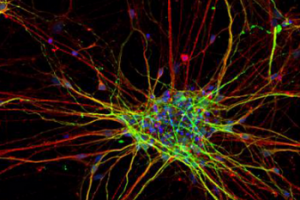Young people at risk of addiction have differences in key brain region
Young adults at risk of developing problems with addiction show key differences in an important region of the brain, according to an international team led by researchers at the University of Cambridge.
Young adults at risk of developing problems with addiction show key differences in an important region of the brain, according to an international team led by researchers at the University of Cambridge.
The study adds further evidence to support the idea that an individual's biological makeup plays a significant role in whether or not they develop an addictive disorder.
During adolescence and young adulthood individuals begin to demonstrate behaviours that are associated with addiction and which suggest that they may be at risk.
One of these behaviours is impulsivity. Sometimes, we need to make quick decisions, for example in response to a danger or a threat. At other times, it is better to hesitate and decide only after careful deliberation. Impulsivity refers to where we respond and act prematurely, without considering the consequences of our actions. While most people occasionally act impulsively, people affected by disorders including attention deficit hyperactivity disorder (ADHD), substance and behavioural addictions, and mental health problems such as depression and anxiety, show much greater levels of impulsivity.
You could continue to read here.





Related Posts